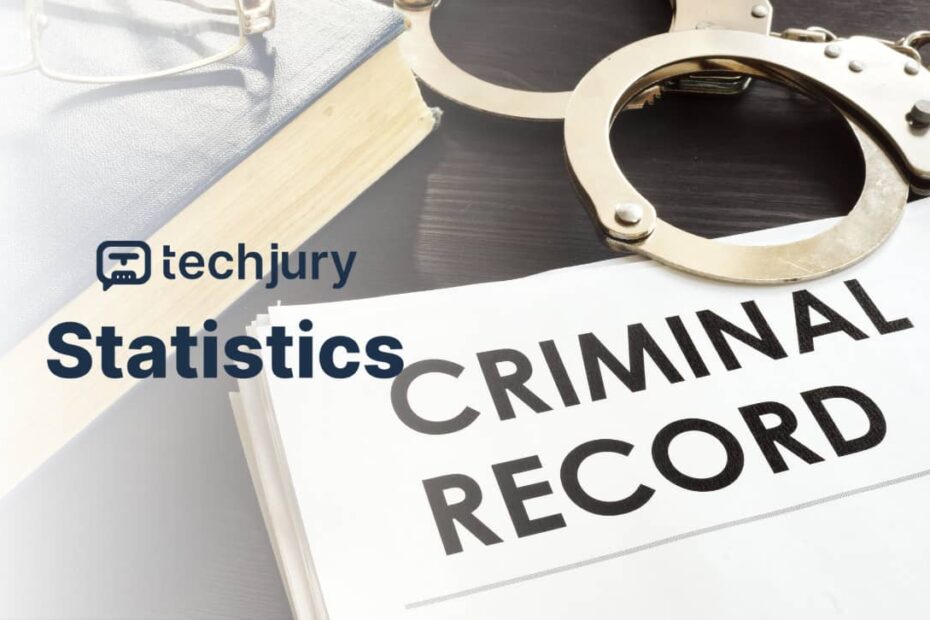Understanding the Complex Landscape of Criminal Records
When we talk about criminal records in the United States, we‘re not just discussing legal documents—we‘re exploring intricate narratives of human experience, systemic challenges, and societal transformation. Each statistic represents a personal journey, a complex intersection of individual circumstances and broader social structures.
The Statistical Landscape: Beyond Numbers
Recent comprehensive research reveals that criminal records are far more than simple legal annotations. They represent profound life experiences that reshape individual trajectories and community dynamics. According to the most recent national data, approximately one in three American adults carries some form of criminal record, a statistic that transcends mere numerical representation.
Demographic Patterns and Systemic Inequalities
Racial Disparities in Criminal Justice
The data tells a compelling and troubling story about racial dynamics within the criminal justice system. African American males experience dramatically disproportionate interactions with legal institutions. By age 23, nearly 50% of Black males have experienced at least one arrest, compared to 40% of white males and 44% of Hispanic males.
This disparity isn‘t just a statistical anomaly but reflects deeply entrenched systemic inequalities. The probability of an African American being wrongfully convicted remains significantly higher, particularly in cases involving murder or sexual assault. Research indicates that Black prisoners are approximately 3.5 times more likely to be innocent of sexual assault charges compared to white convicts.
Geographic Variations in Criminal Record Patterns
Different states demonstrate remarkable variations in criminal record prevalence and enforcement. Mississippi consistently emerges as a notable outlier, maintaining the highest incarceration rate at 575 convicted individuals per 100,000 residents. This geographic specificity underscores how local legal cultures and socioeconomic conditions profoundly influence criminal justice outcomes.
Economic Implications of Criminal Records
Employment Challenges and Workforce Dynamics
Criminal records create substantial barriers to economic mobility. Approximately 27% of ex-convicts remain unemployed after release, a rate exceeding the national unemployment rate during the Great Depression. This employment challenge creates a cyclical economic disadvantage that extends far beyond individual experiences.
Interestingly, some progressive employers are challenging traditional hiring perspectives. According to executive surveys, 82% of organizations report that employees with criminal records perform comparably to average hires. Twelve states now offer rehabilitation certificates, providing structured pathways for professional reintegration.
Technological Transformations in Record Management
Digital Authentication and Record Accuracy
The digital revolution has fundamentally transformed criminal record management. However, challenges persist—the FBI reports that only half of its criminal records are consistently updated, potentially compromising background check accuracy.
Modern technological solutions are addressing these limitations through:
- Advanced data verification algorithms
- Blockchain-based record management
- Machine learning-enhanced accuracy checks
- Real-time updating mechanisms
Rehabilitation and Social Reintegration
Breaking the Recidivism Cycle
Effective rehabilitation requires holistic approaches that transcend traditional punitive models. Successful reintegration programs focus on:
- Comprehensive skills training
- Mental health support
- Community reconnection strategies
- Economic opportunity development
States implementing multifaceted rehabilitation programs have demonstrated significant reductions in recidivism rates, proving that supportive interventions can dramatically alter individual trajectories.
Policy Recommendations and Future Perspectives
Systemic Reform Strategies
Addressing criminal record challenges requires nuanced, multidimensional policy approaches:
- Standardized record expungement processes
- Enhanced employment support for individuals with criminal histories
- Comprehensive rehabilitation program investments
- Bias reduction in legal and employment systems
- Technology-enabled fair background assessment
Psychological and Social Impact
Beyond Legal Documentation
Criminal records represent more than administrative entries—they are profound personal narratives that shape individual identity and societal perception. The psychological burden of carrying a criminal record extends far beyond legal restrictions, influencing personal relationships, self-perception, and community integration.
Conclusion: Toward a More Compassionate Framework
The complex landscape of criminal records in America demands a sophisticated, empathetic approach. By understanding these records as dynamic human experiences rather than static legal annotations, we can develop more effective, humane strategies for individual and collective transformation.
Our data reveals not just statistical trends but human potential—the capacity for growth, redemption, and meaningful societal contribution.
Key Insights
- One in three American adults has a criminal record
- Racial disparities remain significant in criminal justice interactions
- Technological innovations are reshaping record management
- Rehabilitation requires holistic, supportive approaches
- Individual potential transcends historical legal documentation
